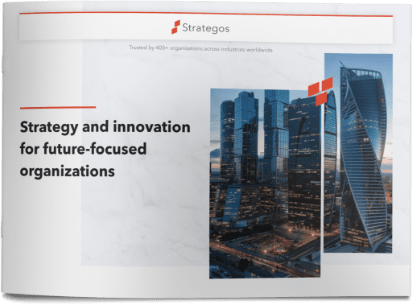Too often when innovation teams get tasked with generating ideas and develop new business opportunities they cannot wait to start organising workshops and do market research.
All this is valuable but only in due time and after some reflection has taken place. What are we aiming for, do we understand what the challenge really is and what insights would help us generate more and better ideas (we believe in both quantity and quality)? These are generic questions every innovation team should start with asking and use the answers to direct their research prior to idea generation.
We call this process framing the innovation journey and belief it is critical to a successful outcome.
Innovation consultants (us included) often tell client teams that asking “why” is possibly the most important question to use from their innovation toolkit. In the earlier phase of the challenge the teams are exploring, challenging and reflecting on findings before turning them into high quality insights.
But for insights to make an impact and stimulate people to generate breakthrough ideas something more is needed than only interesting stories and nice pictures. When the innovation team discovers great insights they will immediately start to generate fragments of ideas themselves. It cannot be helped, people simply have
an innate need to create and ideas will undoubtedly emerge. Collecting these fragments can be of great value as ideas but also to start formulating questions for the ideation exercise. These questions can help the group explore avenues of thought without giving them the answer. It provides a general direction, topics to think about, to consider but not to be prescriptive. The aim is for the group to explore, diverge and in that process generate as many ideas as possible. The fact that these ideas will be grounded in great insights simply helps improve the quality as well as quantity. Innovation can be a more efficient process when we believe that great ideas need to be backed up by great insights.
Does it apply elsewhere? Along all stages in the innovation process, whether at the front end (insights, ideas) or the back end (business models, commercialisation) asking the right questions at the right moment is key to achieving great results. When ideas are selected and we focus on generating options for business models three areas of questioning are critical; 1) do they (customers) want it (our product or service) 2) can we provide it and 3) can we make a profit? These questions are the basis for validating our assumptions and deciding whether it makes sense to commercialise our idea in the end.
Can anyone do this? In our experience with clients the different phases in the innovation process require different skill sets especially when we switch from diverging (exploration, generation) to converging (selection, elaboration). But in both situations there is a common skill that is valuable and the best way to describe it is the ability to take on the role of “investigative reporter”. When we read well researched articles we are triggered to think more clearly and form our own perspectives and this is equally true for insights to be used in ideation. The ability to question, challenge, explore and synthesise is as important in
journalism as it is in innovation. Although some people are better at this than others the basics can be learned and applied throughout the innovation process
by most people.
What does it take? We advocate teams practice these skills, learn on the job and put in the hours. To start we use simple exercises such as reading well researched articles and ask teams to identify insights in multiple categories. This skill can be used when they themselves interview others and identify insights related to their innovation challenge.
Organising a workshop for people to come together and using trends to stimulate their thinking is easy but often leads to poor results and incremental innovation at best. Innovation projects are meant to be exhilarating, they are after all the lifeblood for future business success but are only taken seriously if the
results are equally exciting. For that to happen asking the right questions at every stage of the innovation process is critical.




